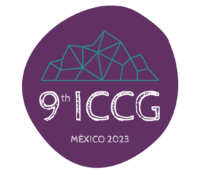Coca-Cola, apart from being present in over 200 countries, entered the Mexican market after the economy started to liberalize. Then, American soft drinks became inseparable beverages within the Mexican culture. In the Highlands of Chiapas, a region with a huge marginalization and high poverty rates Coca-Cola-FEMSA - the company responsible for Latin America - opened in San Cristobal de las Casas a bottling company, which started to produce beverages on a larger scale. Over time, the exploitation of water by that bottling company for its products became noticeable. Nevertheless, the soda drink became popular among its consumers, not only as a thirst-satisfier, but also as medicine, medium of reconciliation, exchange good, spiritual item etc. The unique symbolical function of Coca-Cola made the region interesting for academic research and journalism. There are studies on the correlation between the high rates of diabetes type 2 and consumption; studies on religious uses of Coca-Cola and studies on nutrition and eating habits - to name only a few. As shown, the everyday life of the people in the Highlands of Chiapas cannot be imagined without Coca-Cola. However, former studies have mostly focused on the environmental and social-health consequences in the region. The workshop will put a closer view on the relation between Coca-Cola, Chiapas, consumption and social practices and how they impact everyday life.
